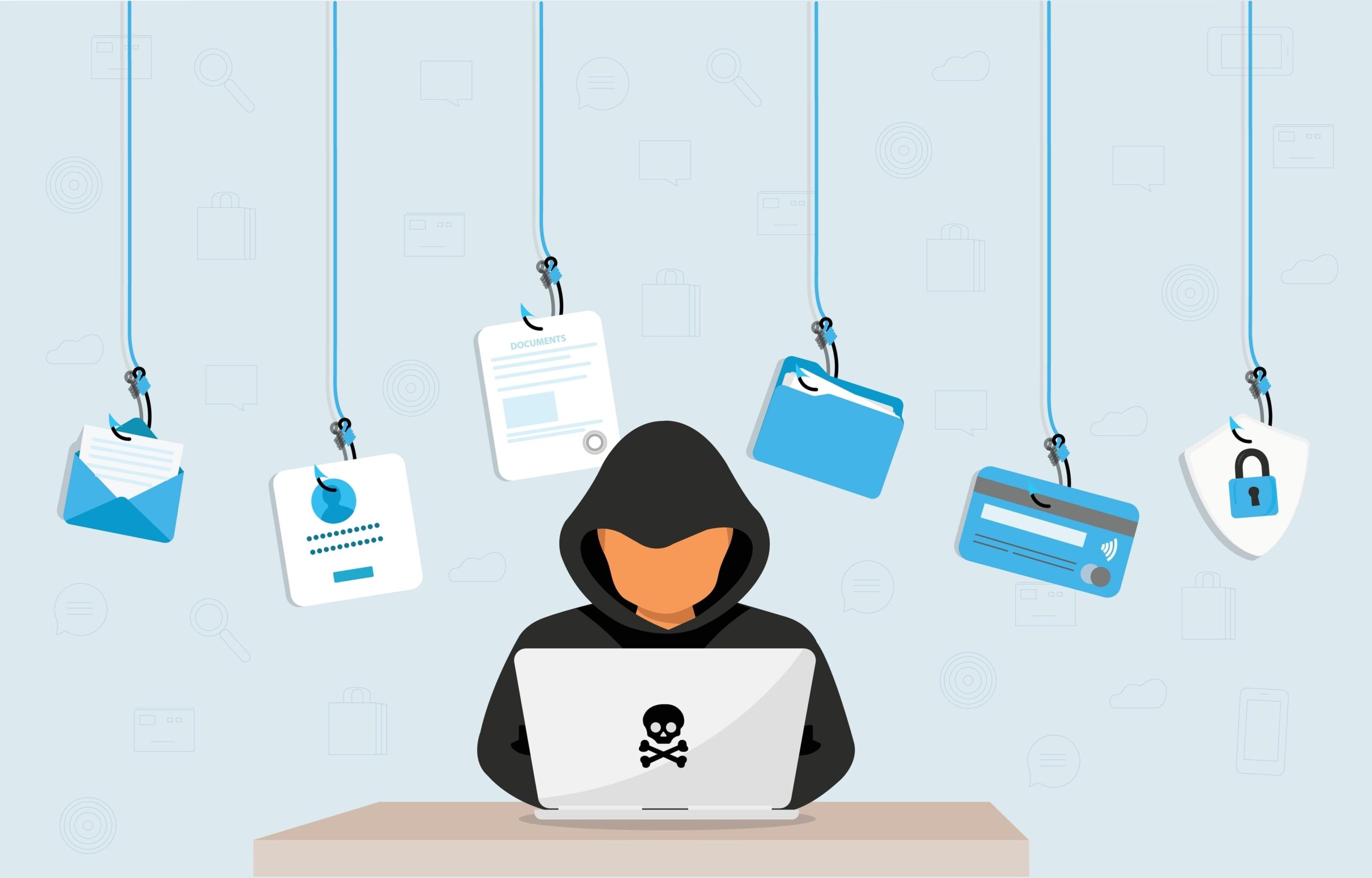With support solutions for the home and office, My Computer Works is here to help you get back to your life.
Protect Yourself From Phishing Scams

Phishing scams come in many different forms, and use fear tactics to trap their victims. Once the victim takes the bait, the scammers begin to steal whatever they can in hopes of financial gain. Phishers are con artists who use their tech savvy skills to cheat and steal from individuals through digital devices.
These scams happen through malicious software/websites, spam, pop-ups, emails, instant messages, and more. Through these platforms, these con artists seek login usernames, passwords, banking information, credit card numbers, social security numbers, and any other personal information.
Protect Yourself From These Common Phishing Scams
The number one reason these are so successful is due to their ability to come off as reliable platforms. If you really pick apart messages, pop-ups, web addresses, and links, you’ll be able to spot some telltale signs of a possible phishing scam. Check out this list of 5 common phishing scams and the ways you can avoid falling prey to them.
1. Fake Search Results
Unfortunately there are ways for fraudulent companies to present themselves as legit. Paid advertising is often used to place a company’s name at the top the search results lists. Basically, by paying a search engine, that specific web address is guaranteed to rank over others. For most people, the top search results are the “best” or “most legit” options.
This is a common problem with ‘support service’ companies. If you click on a fake search result, this could install malware on your device which compromises your personal information.To avoid this, you’ll want to:
- Use a secure search service like, Norton Safe Search. This just runs the web address through a database that can decipher if it is safe and legit.
- Examine the URL very closely. Some scammers use a tactic called ‘typo squatting’, which is registering a domain that is almost exactly the same as a legitimate domain with a small hidden error.
2. Pop-Up “Warnings”
Pop-Ups are small graphics, advertisements, or warnings that appear in your web browser while surfing the web. This can simply be the way the website chooses to advertise. Malicious pop-ups are pop-ups that make it almost impossible to navigate on your browser or close out of the pop-up. Knowing the difference between a harmless pop-up or a malicious pop-up is crucial for protecting yourself from online scammers.
How to protect yourself against these scams:
- Take time to look over the pop-up, a lot of the time there will be spelling and/or grammar errors if it is illegitimate
- If there is a link on the pop-up, and you’re in doubt, just DON’T click it
- If the pop-up is on your actual computer (not in the web browser) for a program you don’t have, you need to get a hold of a trusted tech support company. Chances are the scammers are already on your computer.
3. Email Phishing
Email phishing is a scam that sends emails to individuals while posing as a company or person the individual is familiar with. These emails typically include a clickable link to a fake website that looks like a copy of another legit website. Here, the criminals will illegally attempt to gain the victim’s personal information, identity, and/or financial theft.
Avoid this by:
- Not clicking on any links sent to you via email, unless you know for a fact it is sent by a trusted source
- Calling the “company” that sent the email and verify it with them
- Phishers use a ‘spoofed email’ that is meant to look as close to another company’s email as possible. A quick web search for a company’s email will help you decipher its legitimacy.
- Being aware that Phishing emails are known to use a company’s logo
4. Vishing Scams
Vishing is the ‘voice’ version of a phishing scam. They are the same in the sense that they both use scare tactics to get a hold of victim’s personal information, but it is done by voice over the phone and not email. If you’ve ever received a voicemail saying a warrant is out for your arrest OR you’re in trouble for tax evasion, you have been targeted for a vishing scam.
If you call the number back or proceed to follow the directions, you will be taken advantage of. To protect yourself from this, do the following:
- NEVER give personal information over the phone to someone reaching out to you. Hang up and do research on the company or individual calling.
- Do not engage whatsoever with these types of callers; do not visit a website or call the number they provide


